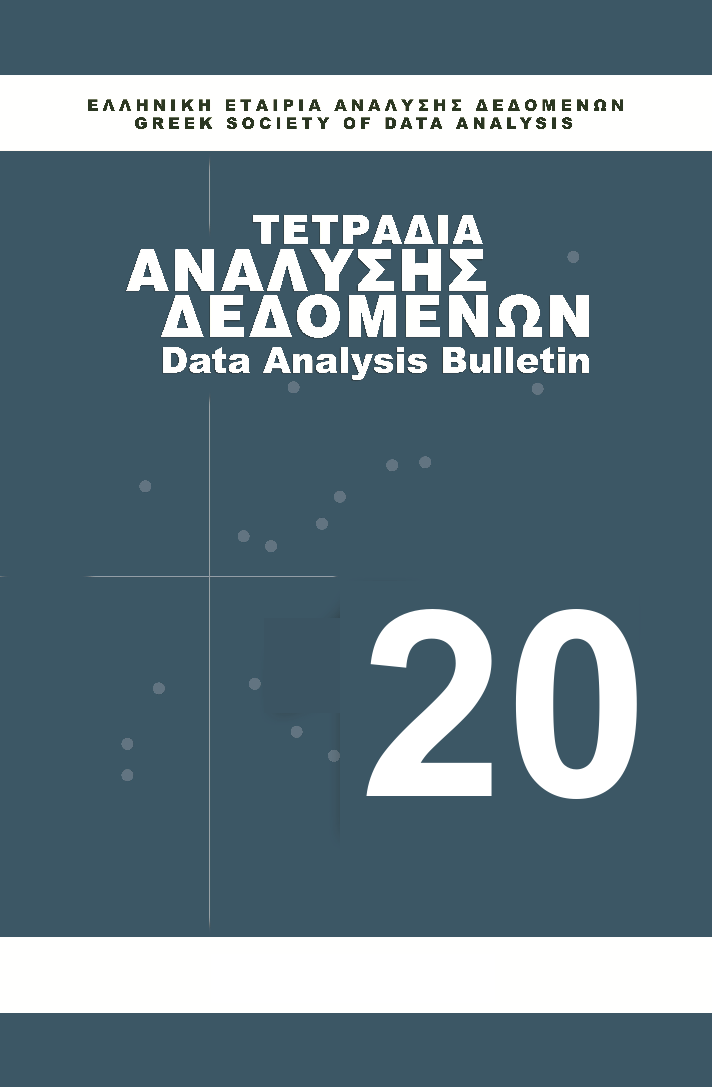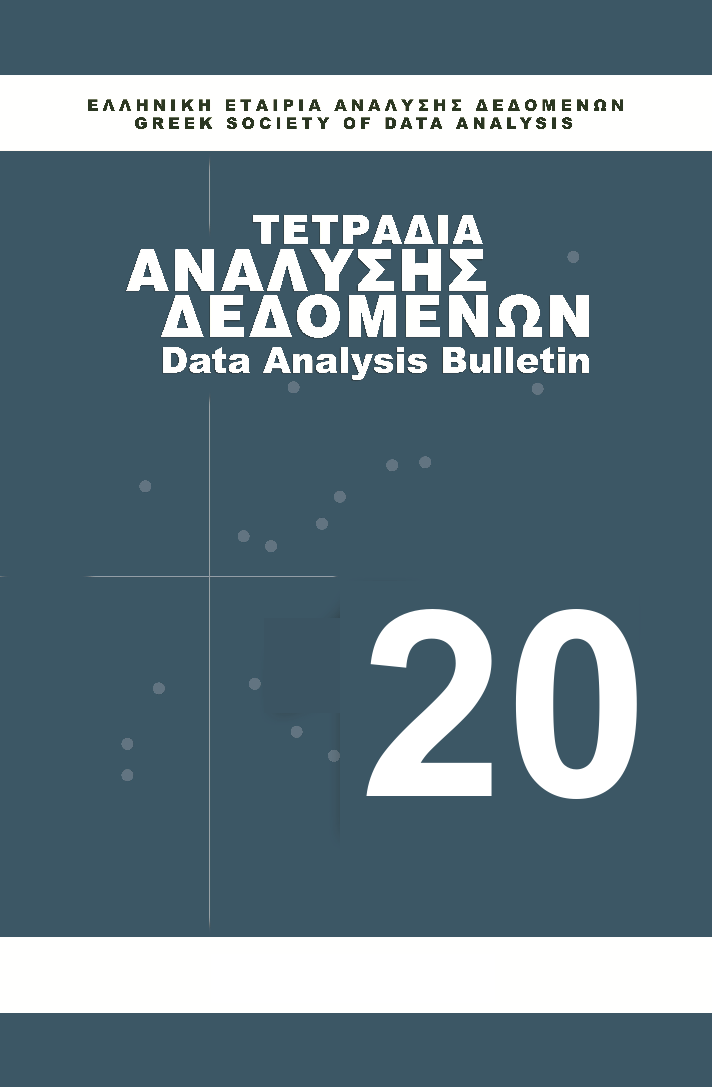Η επίδραση της πνευματικότητας στη διαχείριση ψυχοκοινωνικών προβλημάτων, σε γονείς παιδιών με καρκίνο.

Περίληψη
Η σοβαρή ασθένεια σε παιδιά συνδέεται με ψυχοκοινωνικά, βιοηθικά, πνευματικά και οικογενειακά προβλήματα, τα οποία καταπονούν τους συγγενείς αλλά και ευρύτερα την κοινωνία. Το ιδιαίτερο στοιχείο στις παιδικές νεοπλασίες δεν είναι μόνο η ευάλωτη πληθυσμιακή ομάδα στην οποία στοχεύει, αλλά και το σύνολο των δευτερογενών επιπτώσεων τις οποίες επιφέρει στο περιβάλλον του ασθενούς παιδιού, δηλαδή τις άμεσα σχετιζόμενες με το παιδί που νοσεί πληθυσμιακές ομάδες, τους γονείς και τους συγγενείς του. Τα τελευταία χρόνια έχει αρχίσει να γίνεται λόγος για την «Ανακουφιστική φροντίδα», μια διεπιστημονική προσέγγιση στη φροντίδα που εστιάζει στην στήριξη και την ανακούφιση ασθενών και του οικογενειακού τους περιβάλλοντος, σε καταστάσεις προοδευτικών και απειλητικών για τη ζωή νοσημάτων. Η θεολογική προσέγγιση της ανακουφιστικής φροντίδας, με τη διάνοιξη νέων οριζόντων θεώρησης του πόνου και της ασθένειας και τη διαχείρισή τους με τη βοήθεια της χριστιανικής πίστης, συνιστούν προκλήσεις για την εποχή της ανθρώπινης παντοδυναμίας. Οι παράγοντες «θρησκευτικότητα» και «πνευματικότητα», έχουν αρχίσει τα τελευταία χρόνια να λαμβάνονται σημαντικά υπόψη μέσα στο πλήθος των παραγόντων που επηρεάζουν την ψυχοσωματική ανταπόκριση του οργανισμού στην ασθένεια και τη θεραπεία. Στην παρούσα έρευνα διερευνάται πολυμεταβλητά η επιρροή της πίστης στη διαχείριση ψυχολογικών και κοινωνικών ζητημάτων, που αναφύονται στους γονείς παιδιών με νεοπλασία. Η έρευνα διεξήχθη σε δείγμα 133 οικογενειών παιδιών με καρκίνο και η προβολή των αποτελεσμάτων έγινε κατόπιν στατιστικής επεξεργασίας και ανάλυσης δεδομένων με λογισμικό ανοικτού κώδικα. Σκοπός της μελέτης είναι να αναδείξει κατά πόσο η πίστη στον Θεό μπορεί να παίξει καθοριστικό ρόλο στην πορεία της παιδικής νόσου, τη διαχείριση συναισθημάτων όπως του άγχους και του φόβου, καθώς και τη διατήρηση της ψυχολογικής ισορροπίας του γονέα.
Λεπτομέρειες άρθρου
- Πώς να δημιουργήσετε Αναφορές
-
Νιζάμης Κ., Καλλιακμάνης Β., Κουτσουπιάς Ν., & Παναγιωτόπουλος Π. (2024). Η επίδραση της πνευματικότητας στη διαχείριση ψυχοκοινωνικών προβλημάτων, σε γονείς παιδιών με καρκίνο. Τετράδια Ανάλυσης Δεδομένων, 20(1), 45–58. ανακτήθηκε από https://ejournals.epublishing.ekt.gr/index.php/dab/article/view/31641
- Ενότητα
- Εμπειρικές μελέτες

Αυτή η εργασία είναι αδειοδοτημένη υπό το CC Αναφορά Δημιουργού – Μη Εμπορική Χρήση – Όχι Παράγωγα Έργα 4.0 4.0.
Οι Συγγραφείς που δημοσιεύουν εργασίες τους στο περιοδικό ΤΕΤΡΑΔΙΑ ΑΝΑΛΥΣΗΣ ΔΕΔΟΜΕΝΩΝ συμφωνούν στους παρακάτω όρους:
- Οι Συγγραφείς δεν χρεώνονται με έξοδα υποβολής, επεξεργασίας ή δημοσίευσης των εργασιών τους. Τα κόστη αυτά καλύπτονται από την Ελληνική Εταιρία Ανάλυσης Δεδομένων.
- Τα πνευματικά δικαιώματα των εργασιών που δημοσιεύονται στο περιοδικό ΤΕΤΡΑΔΙΑ ΑΝΑΛΥΣΗΣ ΔΕΔΟΜΕΝΩΝ προστατεύονται από την άδεια Creative Commons Attribution-NonCommercial-ΝοDerivatives 4.0 International. Οι Συγγραφείς διατηρούν τα Πνευματικά Δικαιώματα και χορηγούν στο περιοδικό το δικαίωμα της πρώτης δημοσίευσης. Η άδεια αυτή επιτρέπει σε τρίτους - αποδέκτες της άδειας να χρησιμοποιούν την εργασία σε οποιαδήποτε μορφή μόνο για μη εμπορικούς σκοπούς. Αν οι τρίτοι τροποποιήσουν ή προσαρμόσουν το περιεχόμενο, οφείλουν να κοινοποιήσουν το τροποποιημένο περιεχόμενο for noncommercial purposes only. If others modify or adapt the material, they must license the modified material under identical terms.
- Με την προϋπόθεση της διατήρησης των διατυπώσεων που προβλέπονται στην άδεια σχετικά με την αναφορά στον αρχικό δημιουργό και την αρχική δημοσίευση στο περιοδικό ΤΕΤΡΑΔΙΑ ΑΝΑΛΥΣΗΣ ΔΕΔΟΜΕΝΩΝ.
- Οι Συγγραφείς μπορούν να συνάπτουν ξεχωριστές και πρόσθετες συμβάσεις και συμφωνίες για τη μη αποκλειστική διανομή της εργασίας όπως δημοσιεύτηκε στο περιοδικό ΤΕΤΡΑΔΙΑ ΑΝΑΛΥΣΗΣ ΔΕΔΟΜΕΝΩΝ (π.χ. κατάθεση σε ακαδημαϊκά καταθετήρια), με την προϋπόθεση της αναγνώρισης και την αναφοράς της πρώτης δημοσίευσης στο περιοδικό ΤΕΤΡΑΔΙΑ ΑΝΑΛΥΣΗΣ ΔΕΔΟΜΕΝΩΝ.
- Το περιοδικό ΤΕΤΡΑΔΙΑ ΑΝΑΛΥΣΗΣ ΔΕΔΟΜΕΝΩΝ Α επιτρέπει και ενθαρρύνει τους συγγραφείς να καταθέτουν τις εργασίες τους σε θεσμικά (π.χ. το αποθετήριο του Εθνικού Κέντρου Τεκμηρίωσης) ή θεματικά αποθετήρια, μετά τη δημοσίευσή τους στο ΤΕΤΡΑΔΙΑ ΑΝΑΛΥΣΗΣ ΔΕΔΟΜΕΝΩΝ και με όρους Ανοικτής Πρόσβασης, όπως κατά περίπτωση προσδιορίζονται από τους χρηματοδότες της έρευνάς τους ή/και τα ιδρύματα με τα οποία συνεργάζονται. Κατά την κατάθεση της εργασίας τους, οι συγγραφείς πρέπει να παρέχουν πληροφορίες σχετικά με τη δημοσίευση της εργασίας στο περιοδικό και τις πηγές χρηματοδότησης της έρευνάς τους. Κατάλογοι των ιδρυματικών και θεματικών αποθετηρίων ανά χώρα υπάρχουν στη βάση http://opendoar.org/countrylist.php. Οι συγγραφείς έχουν τη δυνατότητα να καταθέσουν χωρίς κόστος την εργασία τους στο αποθετήριο www.zenodo.org, το οποίο υποστηρίζεται από το OpenAIRE (www.openaire.eu ), στο πλαίσιο των πολιτικών της Ευρωπαϊκής Επιτροπής για την ενίσχυση της Ανοικτής ακαδημαϊκής έρευνας.




